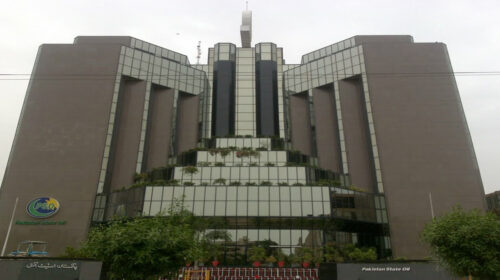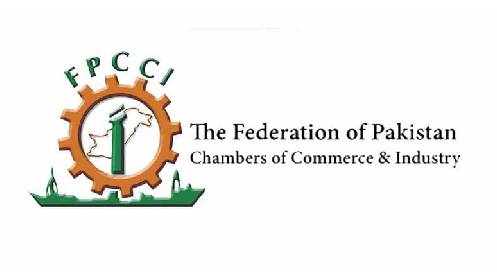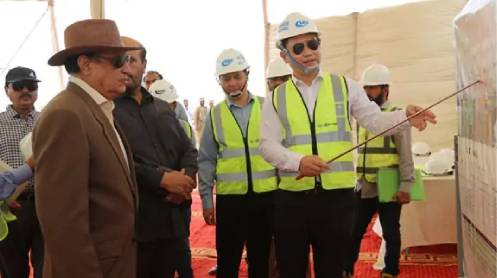The Economic Coordination Committee (ECC) of the Cabinet released on Sunday Rs30 billion funds to help the Pakistan State Oil (PSO) come out of financial constraints and prevent the state-run company from defaulting on international payments.
The PSO was heading towards a default situation, as the receivables swelled an all-time high of Rs605 billion. The Petroleum Division had submitted a summary for funds for the PSO to meet the company’s international contractual payments during 1-14 August, 2022.
Finance Minister Miftah Ismail presided over the ECC meeting at the Finance Division, which was attended by Power Minister Khurram Dastgir, former prime minister Shahid Khaqan Abbasi and Minister of State for Petroleum Musadik Malik.
Prime Minister’s Coordinator on Economy Bilal Azhar Kayani, Federal Board of Revenue (FBR) chairman, Oil and Gas Regulatory Authority (OGRA) chairman, federal secretaries and senior officers concerned also attended the meeting.
The ECC was informed by the Petroleum Division that there had been a decline in the PSO’s sales of the high-speed diesel and petrol by 28% and 32% respectively, while further devaluation of the Pakistan rupee against the US dollar had resulted in increase in cost of procurement of petroleum products.
For the smooth continuity of oil and gas national supply chain and avoid the PSO’s default on international payments, the ECC decided to clear the outstanding payments accumulated during the period of pervious government and approved an amount of Rs30 billion as supplementary grant.
It was also decided in the meeting that the Power Division would make immediate payments of the current outstanding amounts of Rs20 billion by August 1, 2022 and Rs12.8 billion by August 4. The ECC directed the Finance Division and the FBR to submit proposal for generation of Rs30 billion through taxes, within a week.
Sources said that ECC was informed that the PSO had to pay Rs408 billion to Qatar and Kuwait Petroleum Company (KPC) on account of liquefied natural gas (LNG) and oil supplies. The PSO imports LNG from Qatar on long-term contract, while oil imported from the Kuwait Petroleum is on contract basis.
Due to the non-payment of dues by the Sui Northern Gas Pipeline Limited (SNGPL), the power sector and the Pakistan International Airlines (PIA), the PSO’s receivables had soared to Rs605 billion. The SNGPL alone owed Rs337 billion to the PSO on receiving the LNG supply.
The SNGPL had not been able to receive payments from the domestic sector during the last four winter seasons, mainly because of the absence of legal framework to recover the cost of LNG from the domestic sector.
The previous government had passed weighted average cost of gas from parliament but it had not been implemented so far. Due to non-recovery of bills from the domestic sector, the SNGPL had not paid bills to the PSO, the sources said.
Price determination
Amid warning of strike by oil refineries over the average exchange rate, the ECC also approved a proposal to use the average of exchange rate for the relevant period rather than the exchange rate of the last day of fortnight for the current as well as future price determinations.
Earlier on Sunday, the oil refineries and the Petroleum Division had held a meeting on the issue. According to the sources, the oil refineries warned in the meeting that they could also go on strike over changing the formula of exchange rate to determine the prices on a fortnightly basis.
The sources added that they were importing crude oil at the higher rate and the change in exchange rate formula would deteriorate their financial position as well as of the oil marketing companies. The new formula would also affect the PSO, which was on verge of default, the sources added.
In its last meeting, the ECC had also increased the dealers’ margins but refused to increase margins of OMCs. The Oil Companies Advisory Council (OCAC) had said recently that financing cost of maintaining 20 days stock cover and pipeline deadstock ate up to 70% of the OMCs resources.
In a letter to the Petroleum Division, the OCAC said that based on the current global and local scenarios, it had been recommended that the OMC margin be revised to Rs8.85 per litre for both the PMG and HSD from August 1, 2022.
The ECC directed the Petroleum Division to work out other options of fixing the petroleum products prices in consultation with Ogra within a week. It also asked the Petroleum Division to submit proposals for regulating the prices of kerosene oil and light diesel oil after consultation with relevant stakeholders.





